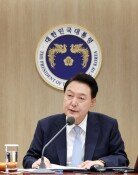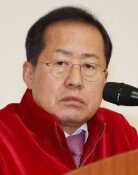S. Korea`s spy agency to overhaul its structure into six sectors
S. Korea`s spy agency to overhaul its structure into six sectors
Posted September. 26, 2013 05:23,
South Korea`s intelligence agency is draw up a plan to overhaul its organizational structure, regrouping its operations into six sectors: blocking new security threats, responding to anti-establishment activities, protecting national security, preparing for reunification, strengthening economic security and reinforcing cyber security, sources said Wednesday.
According to sources in the ruling party, the National Intelligence Service`s (NIS) reform plan calls for readjusting the functions of its domestic operations division, rather than dismantling it, as opposition parties insist. Under current law governing the NIS, the spy agency`s domestic operations division covers domestic security intelligence involving operations against communists, attempts to overthrow the government, espionage, terrorism and international criminal organizations. While maintaining the basic structure, the NIS plans to reorganize its operations into the six areas, the sources said.
The agency will reportedly focus its operations against new security threats on provisioning against North Korea`s nuclear weapons and various terrorist activities. The core part of responding to anti-establishment activities involves monitoring pro-North Korean activities and arresting spies.
The NIS is also said to be planning to strengthen its organization to prepare for reunification. It plans to reinforce its intelligence operations against the North to more closely watch the trends in the North Korean military and people, while drawing up plans to minimize possible chaotic situations on the Korean Peninsula. "Establishing the basis for peaceful reunification" is one of President Park Geun-hye`s four major policy lines, according to the sources.
The state intelligence agency plans to approach economy from national security perspectives, increasing manpower for surveillance of industrial espionage and pursuit of energy resources. Cyber security is also a key part of the reform plan. It is said that the agency`s cyber security operations will focus on responding to Internet hacking attempts and the North`s cyber-terrorism. When President Park called for a stringent reform of the NIS, she presented three guidelines: strengthening economic security, reinforcing intelligence functions toward North Korea, and responding to cyber-terrorism.
As part of its efforts to reinforce its political neutrality, the NIS is also drawing up measures to reduce or eliminate its operations that could cause political controversies. Under the plan, it will likely end its practice of deploying its agents at private and public organizations.
During a September 16 meeting with leaders of the ruling Saenuri Party and the main opposition Democratic Party, the president vowed to get the NIS to deploying its agents at private and public organizations. In addition, the agency is said to be drawing up measures to ensure that its agents carry on their duties without being affected by political situations.
Headline News
- Israel prepares for retaliation against Iran
- Samsung reclaims top spot, surpassing Apple in smartphone market
- 77% of Koreans in 20s and 30s are 'Kangaroo Tribe' due to job crisis
- KBO referees embroiled in controversy over ABS decision concealment
- Inflation, oil price surge put double shock on global economy







